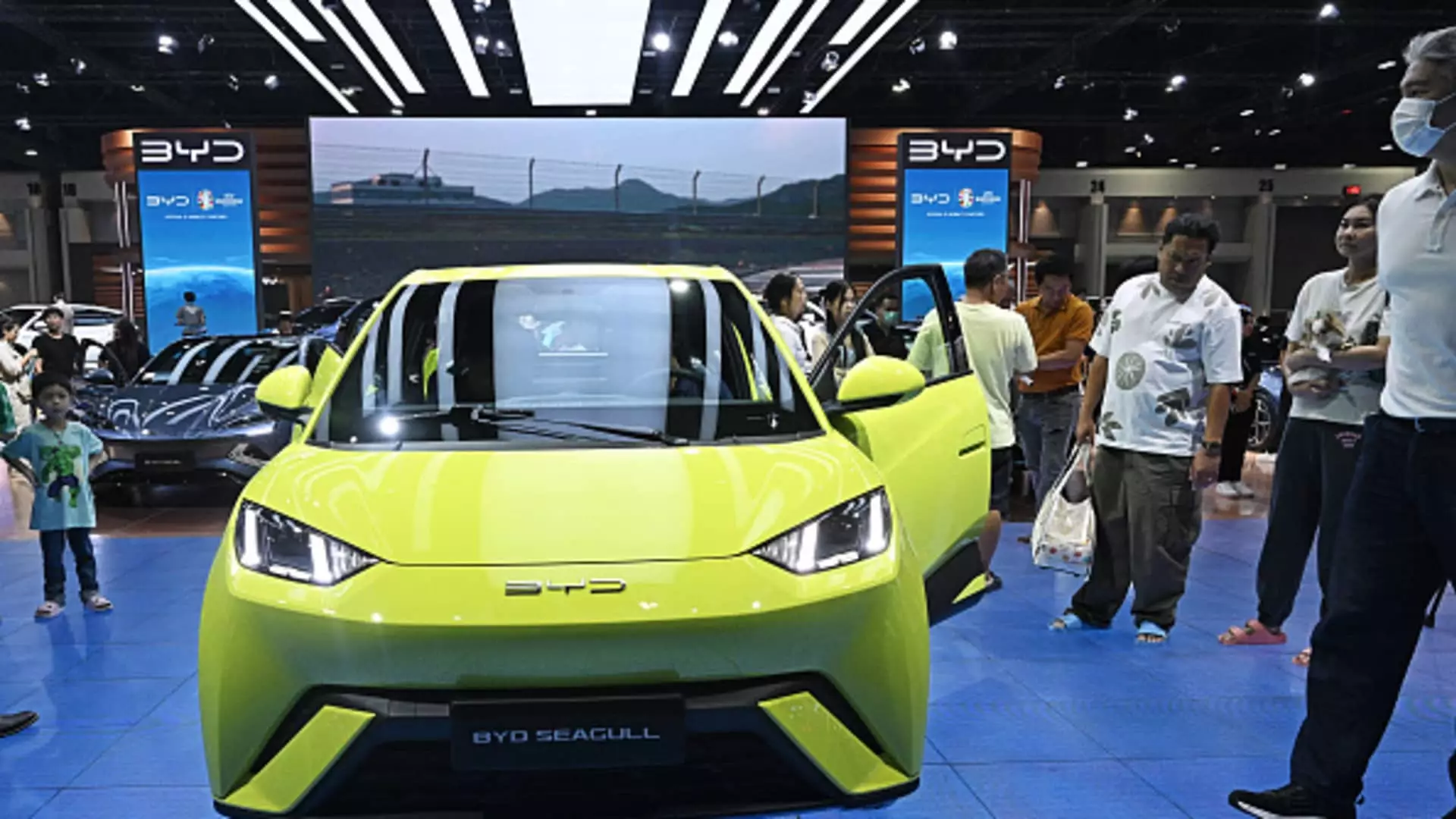The European Union is set to announce its tariff rate plan for Chinese electric vehicles amid concerns over low-priced, subsidized imports. Currently, the EU imposes a standard 10% duty on imported EVs, but there are speculations that these fees could be raised for Chinese EVs starting July 4. Analysts predict that the tariff rate could potentially be increased to as much as 25-30% from the current 10%.
Expectations and Speculations
Senior investment strategists anticipate that the tariff rates could range between 10% and 20%, with some suggesting that it might even lean towards the higher end of 20%. This comes in the wake of the European Parliament elections where the European People’s Party, led by Ursula von der Leyen, gained significant seats. Von der Leyen has been a proponent of de-risking approaches towards Beijing, possibly influencing the decision on tariff rates.
Despite the impending increase in tariffs, experts believe that Chinese manufacturers are well-positioned to navigate these challenges. They are perceived to be highly efficient and innovative, outperforming their EU counterparts even with additional tariffs imposed. This efficiency has been attributed to the support and incentives provided by the Chinese government, leading to a booming EV industry in China.
The concerns surrounding Chinese EV imports extend beyond the EU, with nations like the United States and Turkey taking action to address overcapacity issues. The U.S. has already implemented steep tariffs on Chinese EV imports, raising them to 100% from 25%. Similarly, Turkey announced a 40% tariff on vehicle imports from China, indicating a growing trend of protecting domestic markets from foreign competition.
Chinese EV manufacturers are actively seeking ways to mitigate the impact of tariffs by exploring opportunities in Europe. Companies like Xpeng, BYD, and Nio have been showcasing their models and establishing a presence in Europe. Some manufacturers, such as BYD, have announced plans to build factories in Europe, while others have entered joint ventures to develop new EVs. This strategic approach aims to circumvent tariffs and establish a foothold in the European market.
As Chinese EV manufacturers continue to expand globally and invest in overseas markets, the landscape of the electric vehicle industry is evolving rapidly. While tariffs present a short-term challenge, the long-term prospects for Chinese manufacturers remain promising. With a focus on innovation, efficiency, and strategic partnerships, these companies are poised to maintain their competitive edge despite regulatory hurdles in key markets like the EU and the U.S.
The impact of European Union tariffs on Chinese electric vehicles is a complex issue that underscores the deepening competition and regulatory challenges in the global EV market. As both EU and Chinese manufacturers navigate the changing landscape, the need for innovation, adaptation, and collaboration will be crucial in shaping the future of electric mobility.


Leave a Reply